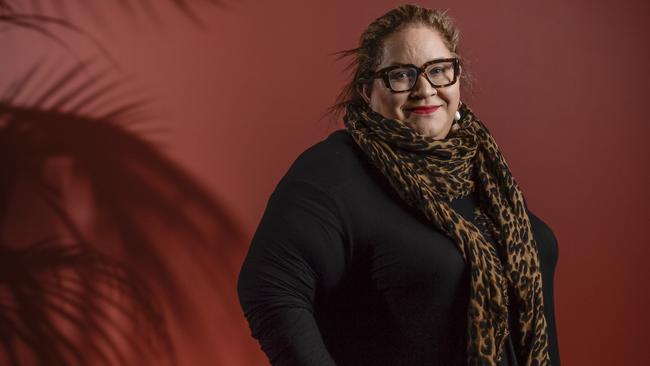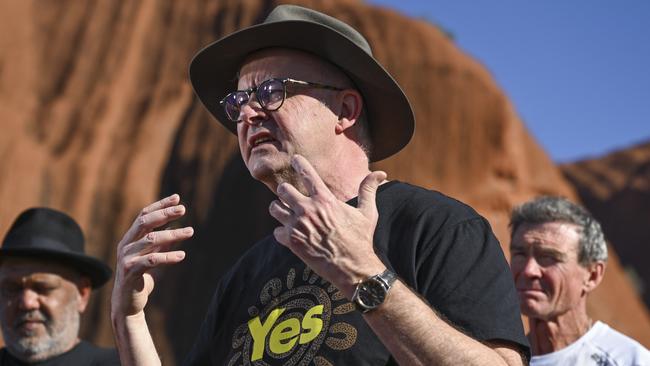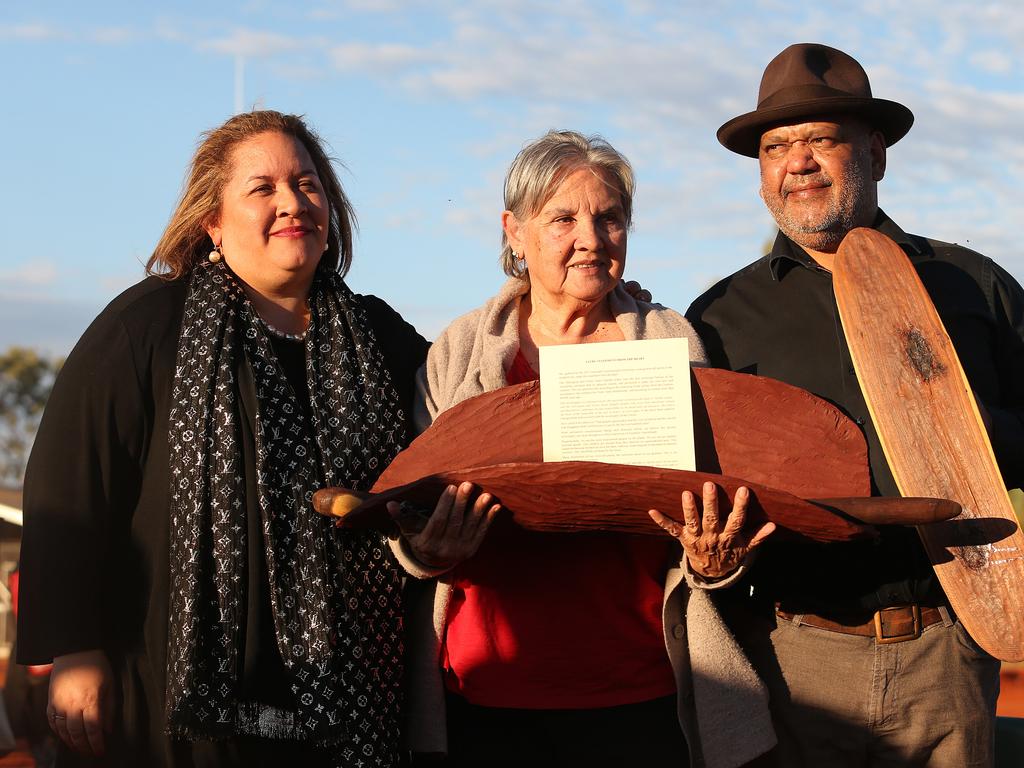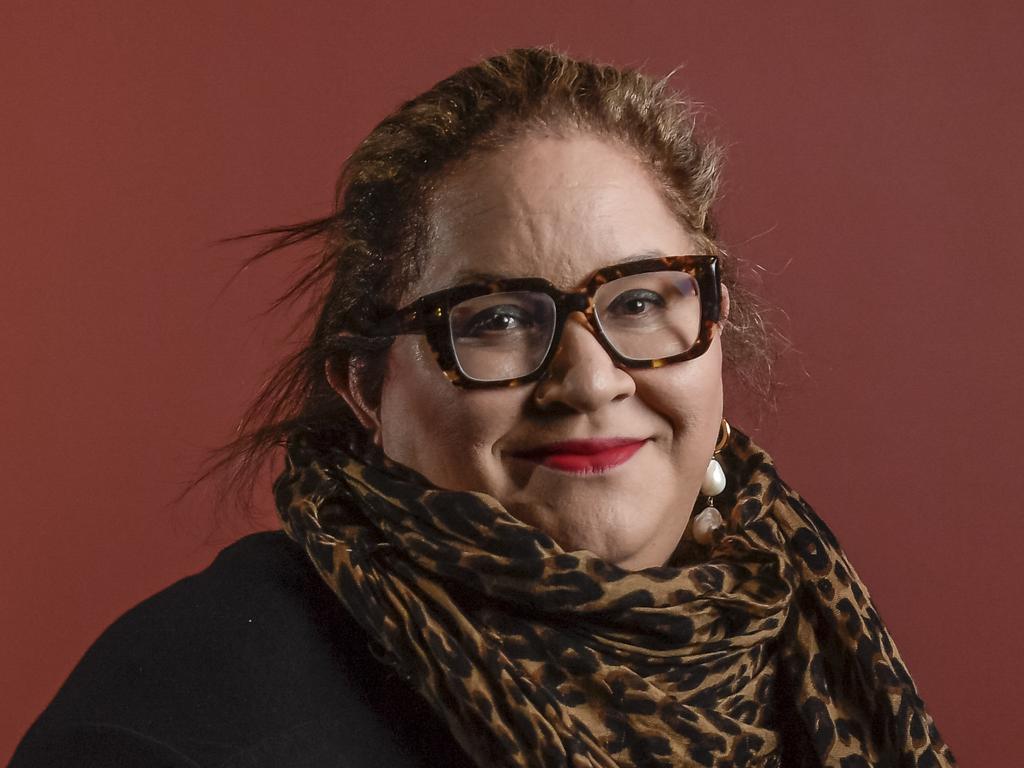Megan Davis breaks ranks over Indigenous voice referendum timing
Uluru Dialogue co-chair Megan Davis says the Albanese government did not give Australians enough time to be educated about the voice.

Voice to parliament architect Megan Davis has suggested the Albanese government should have delayed the referendum in order to better educate voters, breaking from Yes campaigners who remain adamant it had to go ahead in Anthony Albanese’s first term.
Speaking at the Nobel Prize Dialogue in Sydney, Professor Davis said Australians did not grasp “the fundamental facts” of a voice to parliament when voting, with more time required to inoculate against misinformation.
“The research shows that (voters did not know) the fundamental facts of what led to the voice to parliament, a lot of people don’t know, and that could be because we didn’t have enough time, and maybe it should have been a second-term referendum to educate Aussies on the facts,” she said.
Professor Davis, who also served as the Uluru Dialogue co-chair, has wavered in her statements around the impact of timing on the referendum campaign since it failed to gain majority on October 14 last year.
Speaking to The Australian in September, she said there was no evidence that “it was the wrong proposal or that it was the wrong time or that it would not work”.
“It is a part of the process that opens up a path to the next set of possibilities,” she said.
The Australian previously revealed Internal Yes23 research showed awareness levels of Indigenous disadvantage only reached 50 per cent by polling day, and Professor Davis has consistently called out the role of misinformation and disinformation in sinking the voice.

In her panel on Thursday evening, Professor Davis doubled down on criticism of the Albanese government’s reticence to legislate against “Trumpian” misinformation, arguing the current Combating Misinformation and Disinformation bill was a product of poor prospects at the Queensland state election that “they don’t want … to impact their own electoral fortunes”.
“We tried to get some regulation brought in to around, for example, the referendum pamphlet. We asked the government to allow it to be fact checked so that the No case couldn’t just send out lies to every single Australian letter box,” the renowned constitutional lawyer said.
“They didn’t (propose legislation), they wouldn’t, but they’re regulating for their own election, and the Queensland Government’s regulated for their own election.
“We suffered that, but the regulation is going to kick in now because they don’t want it to impact their own electoral fortunes.”
She singled out Peter Dutton for claiming the Australian Electoral Commission favoured the Yes campaign, referring to comments on 2GB in August 2023 when the Opposition Leader said he didn’t think “we should have a process that’s rigged and that’s what the Prime Minister’s tried to orchestrate from day one”.
“The Opposition Leader attacked the integrity of our electoral commission, which is one of the best, if not the best in the world, (but) it never stopped the misinformation,” Professor Davis said.
“I think one of the reasons it (the referendum) lost probably is because of the lack of bipartisan support, but that doesn’t explain it entirely.”
The Nobel Prize Dialogue was facilitated by the University of NSW, of which she a pro vice-chancellor.
She spoke opposite Nobel laureate Tawakkol Karman, who received the 2011 Peace Prize for her role in the Yemeni uprising and subsequent Arab Spring.
Other prominent voice architects and campaigners have insisted the timing could not have changed the referendum’s outcome and Mr Albanese was adamant he would hold to a first-term vote.
Yes23 campaign director Dean Parkin previously told The Australian: “You can’t try and time the historical moment where you’ve got the right environmental conditions, the right social and economic conditions, with a party … and a leader that’s prepared to put political capital on the line.”
“I’ve often been asked, should you have waited? The reality of any change like this is if you see a window open, you have to be opportunistic. You can’t just say, ‘oh, we’ll just let that window close and another one will open’, particularly in Indigenous affairs.”






To join the conversation, please log in. Don't have an account? Register
Join the conversation, you are commenting as Logout